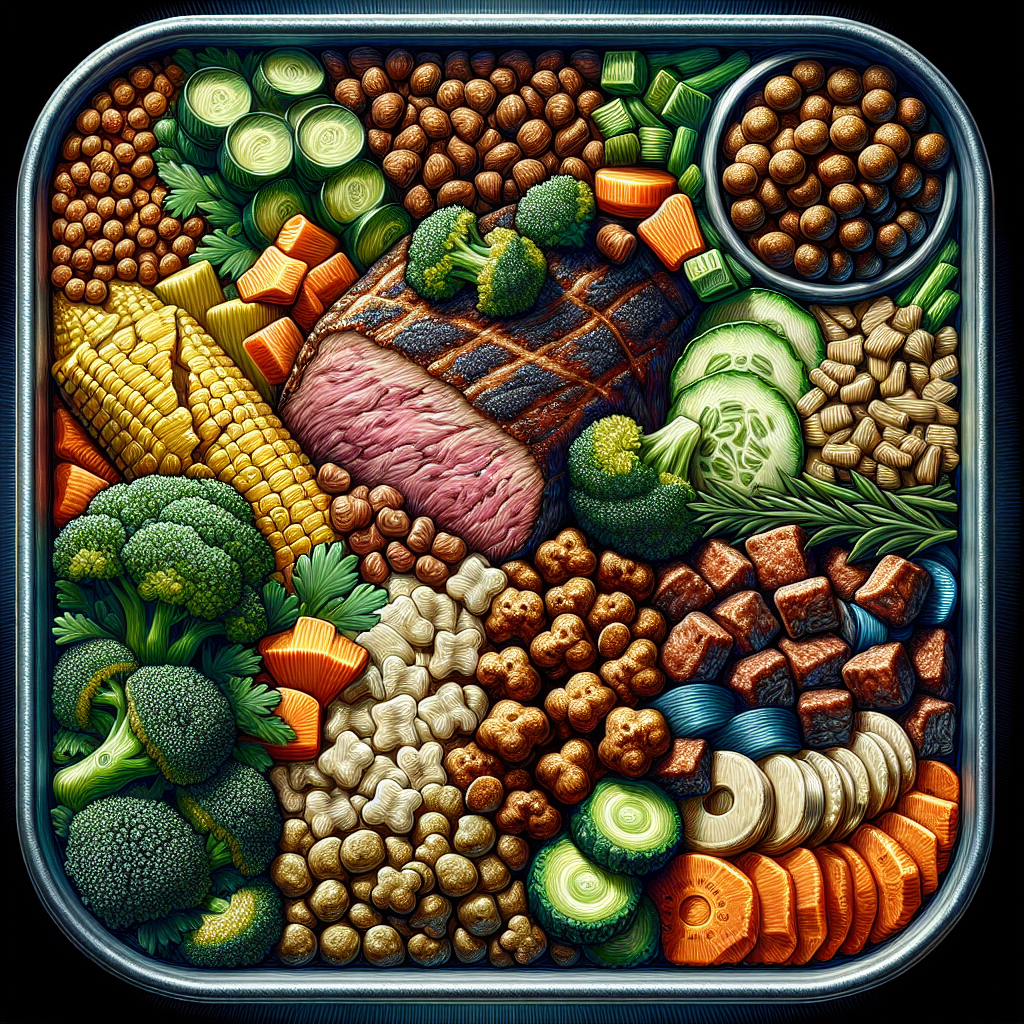
I. Introduction
When it comes to our beloved pets, ensuring they receive the best nutrition is paramount. Dogs, being incredibly loyal companions, depend on us for their diet and overall health. One crucial aspect of caring for your furry friend is selecting the right dog food that meets their specific needs. With a plethora of options available in stores today, navigating through various brands and ingredients can be overwhelming. This article will explore what constitutes quality dog meals and how you can choose the most suitable options for your canine companion.
II. Importance of Quality Dog Food
The significance of providing quality dog food cannot be overstated, as it directly impacts your dog’s health and well-being. Just like humans, dogs require a balanced diet rich in essential nutrients to thrive. High-quality dog food often contains superior ingredients that promote better digestion, increased energy levels, and overall vitality. Moreover, proper nutrition can prevent numerous health issues such as obesity, allergies, and other chronic conditions. By investing in good dog meals now, you’re not only enhancing their quality of life but also potentially saving on veterinary bills in the long run.
III. Types of Dog Meals Available
When it comes to dog meals, pet owners have a wide variety of options to choose from, each catering to different preferences and dietary needs. Commercially prepared dog food typically falls into three main categories: dry kibble, wet canned food, and semi-moist products. Dry kibble is convenient and helps maintain dental health due to its crunchy texture. Wet food often appeals more to picky eaters and contains higher moisture content for hydration. Additionally, there are raw diets that include fresh meat and vegetables or homemade meals tailored specifically for your dog’s needs. Understanding these types will help you make an informed choice.
IV. Nutritional Needs for Different Breeds
Each dog breed has unique nutritional needs that can significantly influence their health and energy levels. Larger breeds, such as Great Danes or Saint Bernards, often require a diet formulated to support bone growth and joint health due to their size and weight. Conversely, smaller breeds like Chihuahuas may need higher calorie content in their meals as they have faster metabolisms. Additionally, active breeds like Border Collies require nutrient-dense dog food rich in protein to sustain their energy levels throughout the day. Tailoring your dog’s meal plan according to its breed ensures optimal health and longevity.
V. Tips for Preparing Homemade Dog Food
Preparing homemade dog food can be a rewarding experience, ensuring that your furry friend receives fresh and nutritious meals tailored to their needs. Start by consulting with your veterinarian to determine the right balance of proteins, carbohydrates, and fats based on your dog’s age, size, and health condition. Incorporate lean meats like chicken or turkey along with vegetables such as carrots and peas for added nutrients. Don’t forget to include healthy grains like brown rice or quinoa for energy. Always avoid harmful ingredients such as onions, garlic, and chocolate while preparing dog meals at home.
VI. Conclusion
In conclusion, the well-being of your canine companion hinges significantly on the quality of dog food and meals you provide. By understanding the importance of nutritious ingredients and recognizing the specific needs associated with different breeds, you can make informed choices that promote overall health. Whether you choose commercial dog food or opt for homemade meals, prioritizing balanced nutrition is essential for a happy and energetic pet. Remember, a healthy diet not only contributes to your dog’s physical condition but also enhances their quality of life, ensuring many joyful moments together.

